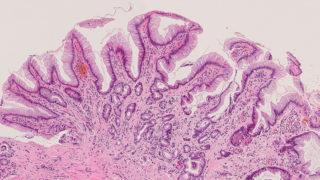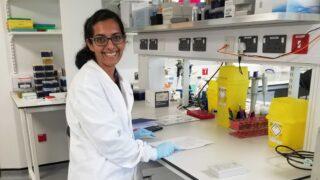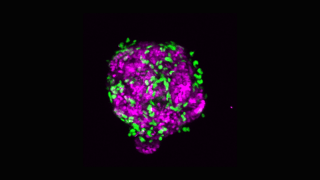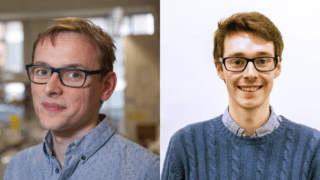Clinical study to investigate new personalised treatment for ovarian cancer
14th March 2022
Dr Michelle Lockley from Barts Cancer Institute at Queen Mary University of London has received funding from Barts Charity and the Anticancer Fund to investigate a new personalised treatment approach for ovarian cancer that has returned after previous chemotherapy.
Read moreUnderstanding the evolution of Barrett’s oesophagus to cancer
17th February 2022
February is Oesophageal Cancer Awareness Month. At Barts Cancer Institute, Queen Mary University of London, a key area of research focus is on a condition that can precede oesophageal cancer called Barrett’s oesophagus.
Read moreImmunotherapy significantly reduces recurrence in aggressive breast cancer
10th February 2022
An immunotherapy drug called ‘pembrolizumab’ has been shown to significantly reduce disease recurrence in patients with the most aggressive type of breast cancer, according to results from a phase III clinical trial led by Professor Peter Schmid from Queen Mary University of London and Barts Health NHS Trust.
Read moreBreaking down language barriers in cancer
4th February 2022
Vinaya Srirangam Nadhamuni, Clinical Research Fellow at Barts Cancer Institute, Queen Mary University of London, has been working on a project to make information about screening programmes more accessible to minority ethnic groups in the UK.
Read moreTargeting healthy cells changes invasive behaviour of pancreatic cancer
25th January 2022
Researchers from Barts Cancer Institute at Queen Mary University of London, led by Dr Angus Cameron, have found a way to modulate the invasive behaviour of pancreatic cancer by targeting a non-cancerous cell type found within pancreatic tumours. The findings, published in Cell Reports, provide valuable insights into the biology of pancreatic cancer progression, and could help to drive improvements in cancer treatment.
Read moreTurning back the molecular clock: Tracing cell lineage
6th January 2022
Researchers from Barts Cancer Institute at Queen Mary University of London, the Moffitt Cancer Center and the University of Southern California, have developed a new method that measures subtle changes to the genetic code of cells (called DNA methylation) to study the dynamics of what happens to cells within our bodies over time. The new method, published in Nature Biotechnology, provides a way to measure the birth and death of human cells, making it possible to trace cell lineage and evolution.
Read more





